Voluntary Assisted Dying bill: Families want loved ones to die with dignity
Watching your parent die of a terminal disease is agony but when they beg you to end the suffering, it’s even worse. This has been the reality for many of those urging NSW politicians to pass the Voluntary Assisted Dying bill next week.
NSW
Don't miss out on the headlines from NSW. Followed categories will be added to My News.
Ron Lane is haunted by his mother’s agonising death in February this year. At 89, Gloria developed a bowel obstruction. Already frail and with a weak heart, doctors refused surgery and she knew she would endure a slow death from starvation.
“When I first saw her in hospital after driving from my home in Sydney to Broken Hill, she said, ‘Don’t let me linger, I am ready to die now’,” Ron recalls.
“Doctors told us there was nothing they could do but keep her comfortable until she died which, they said, may take only a few days.”
Gloria wanted to die in palliative care in her Broken Hill nursing home where she gave Ron, 63, tasks to finalise her life, including her funeral.
“As this dragged on into the second week, I realised that by giving her sips of water and small spoons of soft foods we were just prolonging her slow death. The food was just sitting in her system and decaying,” he said.
“All through this time she would, with a clear and calm voice say, ‘I want to die’.‘I want to die now’. ‘Please give me poison in a glass and leave it’.”
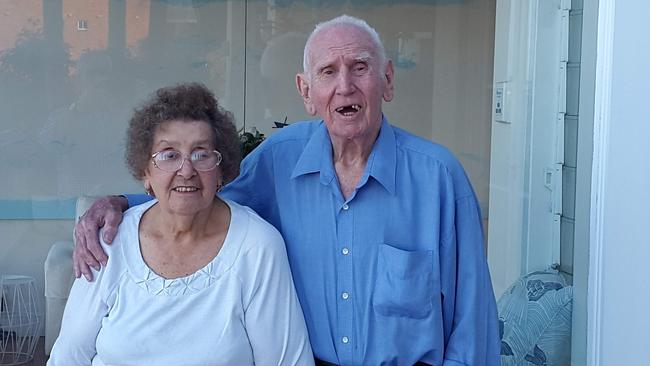
But Ron could not. It was against the law.
“I was absolutely devastated with my inability to help her,” he said.
“Once she stared into my eyes and said, ‘Please just strangle me’.
“Mum said to the doctors ‘If you had a dog and this dog was going to die, you would not let it die like this yet you let me die like this’.
“Her medication was increased into the third week. But as she lay there slowly wasting away, I would see her grimace and a tear run from the corner of her eye. She was in discomfort and very aware of what was happening. She finally died – three long weeks later.
“It was a very sad, painful, uncomfortable and undignified way to end a life that was difficult but happy. I would like this to never happen to anyone.”
This is the same position Shayne Higson was put in with her mother Jan Ryder who had terminal brain cancer in late 2012.
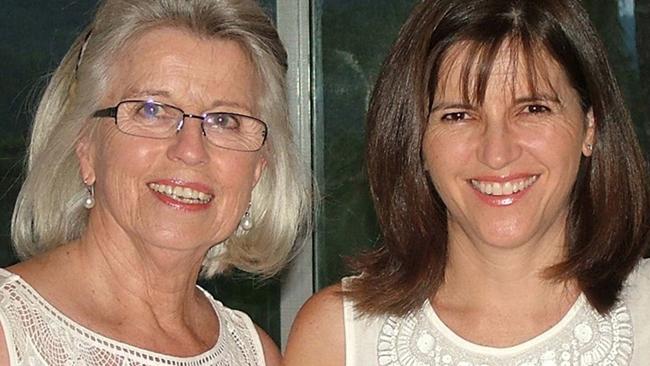
After a seizure, 77-year old Jan discovered she had glioblastoma multiform, a terminal brain cancer.
“They got the seizures under control and her condition deteriorated but she had some quality time at the beginning, she planned her funeral, wrote letters to everyone and spoke to her grandchildren,” Shayne said.
“But it was the last 15 days she pleaded with me to end her life and put something on the bedside table that she could take, but I had no idea and obviously I could have ended up in jail. She asked my sister and all of us. It was so terrible in the end.”
Palliative care is a nice idea. You are given pain relief while you slip off to the other side, but for anyone who has witnessed it, is it anything but. I know.
My father Mel died of lung cancer in 2016 and I spent the last week of his life with him in palliative care.
Despite the care and compassion of the staff and the pain relief, the process of dying is not always serene.
Dad suffered what is known as terminal restlessness the day before he died.
It is the body’s last fight or flight response.
He ripped out his catheter, and his intravenous morphine and tried to make a run for it, but he was so weak he could barely get out of bed.
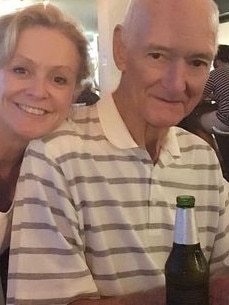
“If I stay here I will die” he said in his distressed and delusional state.
He was clearly extremely distressed.
At this point, palliative care meant heavily sedating him until he drowned in the mucous on his lungs he could no longer cough up. On his death certificate the cause of death was hypoxia.
It was not dignified, it was terrible.
Shayne felt the same way about her mother’s death.
“I was very naive, I thought in this day and age people would not be forced to suffer at the end stage of a terminal illness, but that isn’t the case and wasn’t the case with my mum,” she said.
“It is horrific, they don’t warn you what it actually looks like.
“For Mum, green stuff came out like lava oozing out of a volcano because they increased the morphine to relieve the symptoms and she was clearly distressed.
“Palliative care, what is the difference in a way? It hastens the death and it will take three to
seven days, sometimes longer, (depending on) how high quantity the medication is and all the control is with the doctor.
“You are very much at the mercy of the religious or ethical views of the doctor who is treating the person and the conversations had are whispers with distraught children or partners in corridors, rather than a conversation with the actual person so they don’t even know they have reached that stage where the doctor and family have made the decision to increase doses of morphine.
“If we had assisted dying people can decide the time themselves and get to say their farewells and have their loved ones with them and die peacefully and surrounded by loved ones that is what my mum would have liked.”
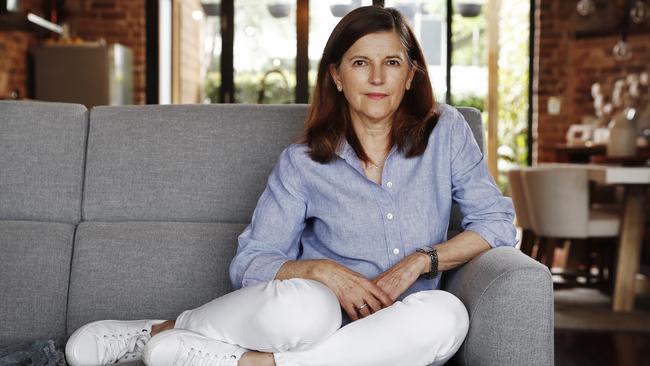
Shayne, now the vice president of Dying With Dignity, has campaigned for NSW to join every other state in Australia and introduce a Voluntary Assisted Dying bill.
Next week, the parliament will debate the new Voluntary Assisted Dying bill presented by the member for Sydney Alex Greenwich who said the bill has many safeguards to ensure efficacy.
“The person has to be in the last six months of their life or the last 12 months if it is a neurodegenerative illness. The person will need the approval of two doctors, those doctors would have to have accredited training in voluntary assisted dying. The person has to have decision making capacity and every step of the process will be reported to the VAD board,” Greenwich said.
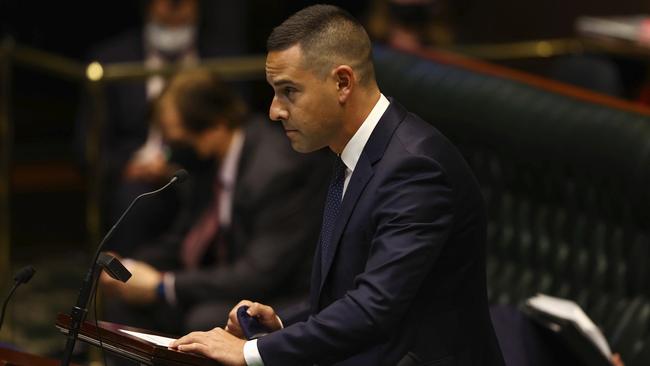
Without such a bill, people will continue to take their lives as is the current situation, he said.
“Why this reform is important has to do with data that came out last week from the coroner which showed of people over 40 who have suicided, one in five has been linked to them having a diagnosis of a terminal illness,” he said.
“People should have better choices than a cruel and painful death or a lonely suicide.
“VAD provides the individual with the ability to talk to their doctor about their end
of life options and allows them the choice of a dignified and peaceful death.”
‘I would like the option to pass peacefully’
Terminally ill Belinda Ryan from Tuncurry is depending on a yes vote so she has the option of opting for voluntary assisted dying should she feel she needs it.
In 2016, at age 48, the former school headmistress was diagnosed with Myeloma, a cancer of the blood which has been aggressive and resistant to all treatments.
The now 53-year old has few options left apart from bridging chemotherapy to buy a little more time.
“It is to give me a little bit longer and then treatment finishes and we go through the end of days,” she said.
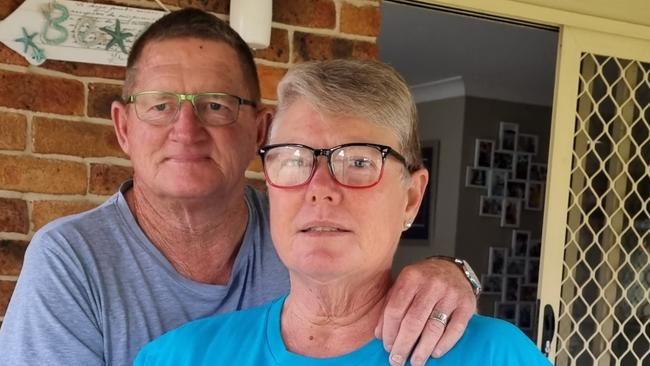
“Myeloma typically affects the bones and major organs, causing excruciating pain, which is often unable to be adequately managed.
“I don’t know why voluntary assisted dying can’t be a choice,” she said.
“Myeloma can be a very painful death and most passings are not pleasant or quick. For me it would be reassuring that I had that choice, it would be a great relief to me that that legislation is passed before I do.”
Belinda wants to spare her husband and three stepchildren the horror of watching her die.
“For me VAD laws would allow me, should I choose to, to pass peacefully before my cancer ravages my organs and bones.
“I may not need to access VAD at the end of my time, however I would very much like to know I have the option to pass peacefully, in manner of my choosing. I wish to minimise not only my own suffering, but the suffering of those I love,” she said.
“We don’t let our dogs and cats and horses die a horrible death, we should have the same choice for human beings.
“Palliative care can only do so much and there are situations where pain cannot be adequately managed. As long as an individual can make the decision in a lucid manner.
“This is about giving people who are in my situation another choice, another option for a death that is dignified because often it is not. I know there are strong Christian and moral and ethical issues, but I’m not asking those people to use it, it is just a choice.“
Got a news tip? Email weekendtele@news.com.au




